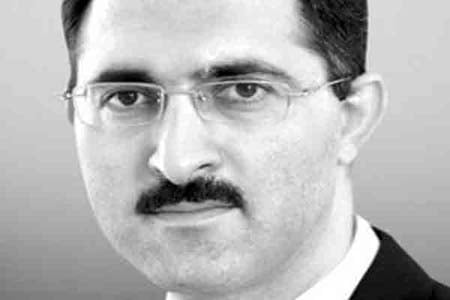Right to dissent in Turkey

Date posted: April 7, 2014
ABDULLAH BOZKURT
No doubt that the right to dissent and differ is far from treasonous, and is actually more patriotic than just going along with everything else the Recep Tayyip Erdoğan government in Turkey stands for.
The primary reason why members of Hizmet (Service), a faith-based social movement inspired by Islamic scholar Fethullah Gülen, have been attacked, vilified and stigmatized by a government that is dominated by overzealous political Islamists and pro-Iranian sympathizers is that Gülen is standing up to the increasingly authoritarian powers of Erdoğan, who has seized control of the republic’s institutions including the judiciary, leading to increased polarization and tension in Turkish society. The vitriolic accusations and slanderous campaign run by Erdoğan and his loyalists, backed by their mouthpieces in the pro-government media, against their opponents aim to crush dissent, muzzle criticism and intimidate the independent press amid massive corruption scandals.
In an op-ed piece he wrote for the Financial Times on March 10, Gülen described the predicament the country is facing by saying that “a small group within the government’s executive branch is holding to ransom the entire country’s progress.” In fact, Gülen’s diagnosis of the key problem that has tarnished democratic credentials and dealt a blow to accountability, rule of law and fundamental rights and freedoms in the governance of the country confirmed similar accounts of many insiders who had served as Cabinet members and senior ruling party officials alongside the Turkish prime minister. The series of leaked audio files in the past three months has exposed this oligarchic cadre led by Erdoğan that has collectively plotted to eliminate opponents, bought off the press and collected their share from those that wanted to do business with the government.
During the March 30 local elections, Erdoğan bought some time to sustain his rule when the governing Justice and Development Party (AKP) won 43 percent of the vote in the last elections, albeit with a 7 percent drop from the 2011 elections. His plans to consolidate his rule were thrown into disarray, nonetheless, when he realized the risks of running for the presidential office as his popularity numbers are not enough to clear the first round. What is more worrisome, Erdoğan must take care of lingering legal troubles stemming from a series of charges ranging from corruption to money laundering, from influence-peddling to abuse of power. Just as the great Roman historian and orator Publius Tacitus maintained, “The more corrupt the state, the more numerous the laws,” the Erdoğan government will have to push a series of laws through Parliament in order to bring immunities and reduced sentences for himself and others implicated in the corruption.
In the meantime, Gülen and others who stood up against Erdoğan’s abuses of power will continue to be scorned and ridiculed in conspiracy-laden campaigns in a pathetic attempt by Erdoğan and company to discredit opponents. Perhaps that is the price the nation must pay to consolidate its fledgling democracy. The unconstitutional profiling of unsuspecting citizens and illegal wiretaps and surveillance programs against Erdoğan’s critics will likely pick up speed. Since the Turkish prime minister commands total obedience, he will not hesitate to use scare tactics, wide-scale deception and massive corruption practices to oppress people, groups and businesses that are not cowed. In the meantime, the divide between true democrats and Machiavellian-type bureaucrats, intellectuals, academics and politicians will become crystal-clear.
The oft-used word “traitor” by Erdoğan and his company to smear opposition in Turkey is an important indicator of how Turkish democracy is far from a full-fledged democracy and leaning fast towards authoritarianism. Not only members of the Hizmet movement but also other critics of Erdoğan have been quickly accused of treachery by government officials. Muharrem Yılmaz, president of the Turkish Industrialists and Businessmen’s Association (TÜSİAD), the wealthiest and most powerful business group in the country, was accused of treason by Erdoğan in a public rally when in fact Yılmaz simply warned the government that foreign investment will not be made in a country in which there is no respect for the rule of law, where legal codes conflict with European Union rules, public procurement laws have been amended dozens of times and companies are pressured through tax fines. Such a harsh accusation should not be expressed by an elected leader without strong evidence and solid legal grounds. Yet Erdoğan, acting as prosecutor, judge and jury, has lately been leveling treason charges against anyone with an opposing stance, from business organizations to journalists, from political opposition parties to members of the judiciary.
What follows is that equating criticism with treason by the country’s highest political leadership fuels a climate of “spy-mania” in Turkey and raises the specter of former communist-party regimes in which dissidents and critics are summarily prosecuted and persecuted under “treason, anti-government activities, espionage and secrecy” charges. The Erdoğan government’s expanding campaign to pressure legitimate political opposition as well as clamping down on dissent and criticism by business lobbies, advocacy groups and civic movements continues to spin out of control in Turkey. That unfortunately has the impact of poisoning politics and threatening the social fabric of the country.
Now the government’s extensive efforts to spin the conspiracy stories with its own twists and turns in order to water down the corruption scandals implicating Erdoğan and his family members have engulfed the Turkish diaspora as well. The Turkish prime minister deliberately escalated his fight against Hizmet to overseas, trying to drag Turkey’s partners into a domestic dispute. He even misquoted a phone conversation he had with the US President Barack Obama before the local elections and lied, saying that his grievances over Gülen were accepted by Obama, drawing an unprecedented rebuke on his distorted remarks from the White House.
Picking up after his boss, Foreign Minister Ahmet Davutoğlu, the architect of fundamentally shortsighted foreign policy in Syria and Egypt, mobilized Turkish diplomats in exporting domestic divisions to expat communities abroad. Davutoğlu openly accused Hizmet of treachery and attacked the critical media for questioning incidents on the Syrian border and for criticizing the content of a security leak that exposed an alleged staging of a conflict with Syria over a false-flag operation. The Turkish foreign minister, who had been praising Turkish schools and visiting them until a year ago, suddenly had a change of heart because Hizmet did not support his ideology-driven foreign policy choices in the Middle East at the expense of Turkey’s traditional approach that valued its ties with transatlantic partners and allies.
Erdoğan, who had characterized his many meetings with the Hizmet community in diaspora as an effort to attract attention from foreign leaders and marshal political support at home, now portrays Hizmet as an enemy and lobbies his interlocutors abroad to crack down on their schools just as he has been trying to do in Turkey with limited success. Despite the fact that these volunteer-driven and non-partisan schools do not receive any funding from the Turkish government and that they are successful educational institutions perfectly in compliance with the host country laws and regulations, Erdoğan government’s demonizing efforts will eventually boomerang on the Turkish government itself as this would be seen as meddling into other countries’ affairs. The fact that these schools are among some of the best-achieving educational institutions in the countries in which they were established and that they actively maintain outreach activities belies the slanders and smears run by the Erdoğan government.
Erdoğan’s war against Hizmet, which is not based on any sound policy advice, is mainly motivated by personal anger and bitterness over his loss of a major endorsement by an important group as well as his huge embarrassment over the corruption scandals. He treats the slightest dissent as treason — as displayed in numerous incidents where Erdoğan publicly slammed journalists for expressing views that are deemed to be critical of government. If the new draft intelligence bill that gives sweeping powers to the government gets enacted in Parliament, the Erdoğan government will have a broader driftnet in its hands to round up practically anybody who created an inconvenience for the government. The witch-hunt, already unleashed by the Erdoğan government against opponents, aims to smother criticism and stifle dissent first and foremost.
The concern expressed by some Turkish NGOs abroad has nothing to do with a partisan political issue but rather a genuine worry about the future direction of Turkish democracy regardless of what Erdoğan and Davutoğlu think of it. Criticism will not be limited to the political arena, either. The Erdoğan government will surely face a series of legal challenges both in Turkey and abroad including the Strasbourg-based European Court of Human Rights. The embattled Erdoğan’s enlisted allies abroad, if any, will also be pulled into this quagmire where politically motivated prosecution on trumped-up charges of treason and espionage will prompt a huge outcry in Turkish society and in the international community as well.
Source: Todays Zaman , April 7, 2014
Tags: Defamation of Hizmet | Freedoms | Hizmet (Gulen) movement | Hizmet-inspired schools | Turkey |
























